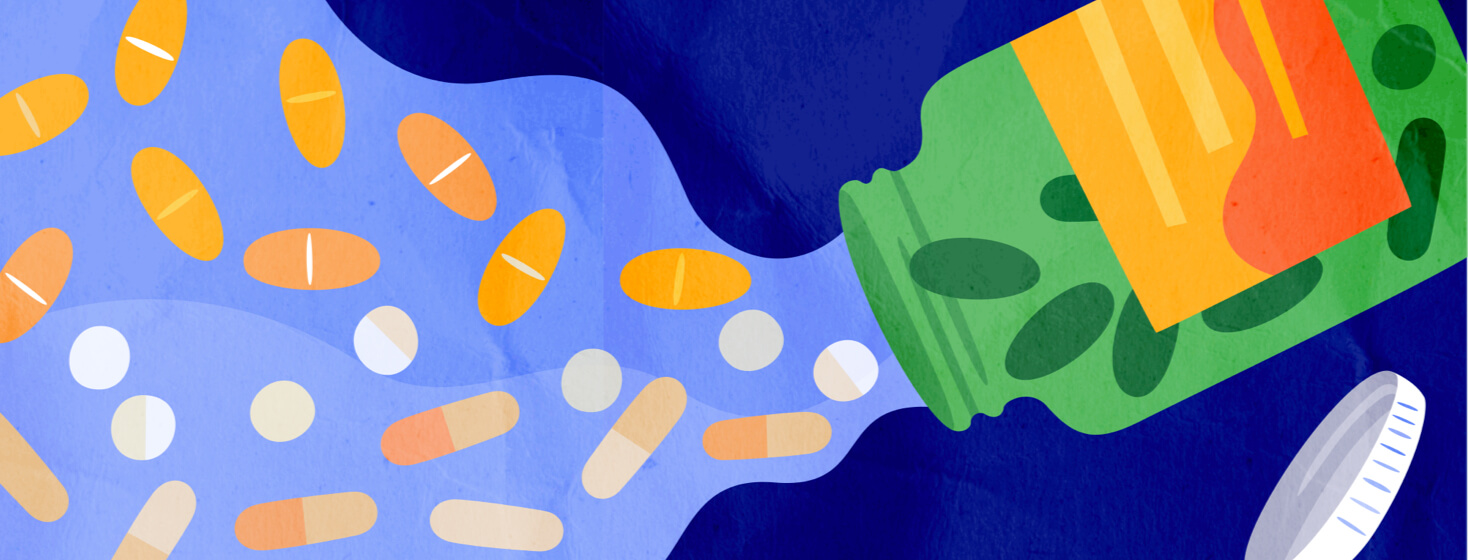All About Fat-Soluble Vitamins In CF
Vitamins are so widely used that more than half of adults in America head to their medicine cabinet daily to take them or other dietary supplements.1 I know this is true in my household as everyone takes some sort of multivitamin in an effort to keep them healthy - adults and children included.
However when living with CF, vitamin supplementation is even more important and beneficial to our bodies. Due to GI issues like malabsorption and pancreatic insufficiency, people living with CF should be on high alert of vitamin deficiencies.
In part 1, we’ll discuss what exactly are fat soluble vitamins and where to look for them in your diet. In part 2, the discussion will continue to help guide on how to ensure your vitamin levels are sufficient.
What makes fat-soluble vitamins different?
There are 13 different vitamins that are essential to keeping our bodies healthy and functioning normally.2 Vitamins are often broken into two categories: fat-soluble vitamins and water-soluble vitamins, depending how they function in the body.
Fat-soluble vitamins: Vitamins A,D,E, and K are a type of vitamin that is soluble in organic solvents.2 These vitamins are absorbed and transported in the body in a manner similar to fats from the foods we eat. Therefore, they are stored in body tissue to be used as needed over time and can reach dangerous levels if ingested too much.
In comparison, water-soluble vitamins are easily absorbed and then excreted through waste by the kidneys through urine. Therefore, they rarely reach dangerous levels. An example of a water soluble vitamin is Vitamin C.2
Role of fat-soluble vitamins in the body
Each vitamin has a specific role that is vitally important to our health and bodily function. Here’s a quick guide to what each vitamin does and where we can find sources of the different vitamins in our diet.
Vitamin A
Vitamin A helps regulate mucus membranes and vision in the body.3 It also has an important role in boosting the immune system to fight infections.
Vitamin A in your diet
Vitamin A is found in foods made from animal products such as:3
- Beef liver
- Dairy products
- Fish oil
In addition, an antioxidant called beta carotene found in carrots, kale, and sweet potato can be converted into different form of Vitamin A in the body.3
Vitamin D
Vitamin D helps promote calcium absorption which is important for bone growth and strength. In addition, Vitamin D plays a role in arming the immune system, reduction of inflammation, and glucose metabolism.4
Vitamin D in your environment
There are two ways we can get Vitamin D to meet the daily recommended amount. The first is absorption and synthesis of UV rays from the sun. The amount absorbed from the sun depends on the season, time of day, color of skin, and sunscreen usage.4
Vitamin D in your diet
The second way we get Vitamin D is through fortified foods in our diet. Unfortunately, there aren’t many foods that naturally contain high levels of Vitamin D. However, foods fortified with Vitamin D help us get the recommended amounts.4 Those foods include:
- Cow’s milk dairy products
- Plant-based milk alternatives
- Breakfast cereals
- Orange juice
Vitamin E
Vitamin E is the name given to 8 compounds that act as antioxidants to protect the body’s cells from damage caused by free radicals.5 As well as boosting the immune system, Vitamin E plays a role in dilating blood vessels and avoiding blood clots.
Vitamin E in your diet
Vitamin E is found in:
- Vegetable oils
- Nuts and seeds
- Green vegetables like broccoli and spinach
Vitamin K
In comparison to Vitamin E, Vitamin K’s main role is to ensure proper blood clotting in the body.6 That’s why in episodes of hemoptysis, people with CF are often prescribed a Vitamin K supplement.
Vitamin K in your diet
Vitamin K is found in many foods including:
- Green leafy vegetables
- Vegetable oils
- Soybeans
- Meat and cheese
- Eggs
The more you know
Knowing what fat-soluble vitamins do and where to find them in your diet helps highlight how important they are to our overall health and well-being with CF.
What are your favorite fat-soluble vitamin packed foods? Do you take a fat-soluble vitamin? Share with us below!

Join the conversation